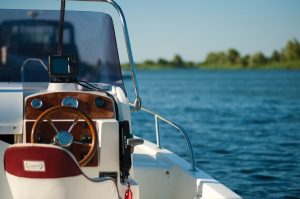request a consultation
Fill out our contact form and we’ll be in touch with you right away.
Protect Yourself: What Does Boat Insurance Cover?
For those of us who have access to the ocean, owning a boat always gives you something to look forward to. While many boat owners may view it as a very expensive toy, it’s also very important to make sure your boat (and yourself as the driver) are properly insured.
Boat insurance helps protect you and your water vessel against damage and liability if a boating accident occurs. Just like car insurance, it can also protect you if you cause injury or damage to someone or their personal property in an accident.
In this post, we’ll explain what boat insurance covers, and why you’ll need it before you hit the water. If you’ve been hurt in a boating accident, call Mickey Keenan, P.A. today.
What Type of Boat Insurance Policies Are Offered?
There are two types of basic boat insurance:
- Actual Cash Value Coverage: This type of coverage will cost you less upfront. However, it factors in depreciation. This means the insurance company only pays up to the current market value of the vessel if it is deemed a partial or total loss.
- Agreed Value Coverage: This policy, or a loss settlement, will cover a vessel based on its value at the time you secured the policy. It costs more upfront but does not factor in depreciation if a vessel is deemed a total loss. Partial losses, however, may be depreciated.
What Types of Vessels are Covered?
Boat insurance typically covers a wide range of watercraft, such as:
- Personal watercraft
- Sailboats
- Yachts
- Dinghies
- Boat rentals
- Boat clubs
- Commercial boating
What Does Boat Insurance Cover?
Although some homeowners insurance policies may include riders for boats on the smaller side, they typically limit it to a boat under 100hp that can only be used in inland waterways.
So, if you have a boat you plan to use outside of an inlet, you’ll need a separate boat insurance policy. Here’s what marine insurance will typically cover:
Physical Boat Damage
A standard policy covers physical damage to a boat’s hull and components; such as the sails, motor, and furnishings. Many insurers do not include wear and tear, manufacturer’s defects, denting, marring, or damage sustained from animals.
Personal Property Coverage
This can cover the replacement cost of personal effects on the boat, such as boat emergency equipment, fishing equipment, clothing, etc., unless the insurer explicitly excludes it.
Medical Payments Coverage
In the case of an accident, medical payments coverage helps cover the cost of medical bills for everything from emergency transportation and surgery to medicine, therapy, and any other necessary treatment.
Liability Coverage
This type of boat insurance coverage helps protect you from insurance claims and lawsuits in the event your boat damages someone else’s property or causes injury. Standard policies usually cover fuel spills, but this is where you should check with your insurance agent.
Uninsured Boater Coverage
This coverage can help pay for medical costs in an accident involving another boater with no coverage. This includes yourself, in addition to any passengers.
Roadside Assistance and Reimbursement
If your water vessel becomes non-operational, roadside assistance and reimbursement coverage help pay for the transport of your boat to the nearest repair shop.
Add-On Coverage
Many boat owners take advantage of “add-on” coverage above their standard policy. These typically include:
- Specialized coverage to handle damage or loss to a specific item on the vessel, including accessories or an expensive prop
- Consequential damage not involving an accident that could be caused by corrosion, mold, and rot
- Wreckage removal of a boat suffering minor to substantial damage
- Cruising policy extension usually provides temporary insurance coverage when traveling out of the country
- Coverage for a boat trailer
Are “All-Risk” Policies Extensive?
In contrast to the name of the policy, “all-risk” does not cover as much as you would think. When looking for the right protection to purchase, it’s important to note that how and where you use a boat determines the best type of insurance for you.
Many marine insurance companies offer “all-risk” coverage for the best protection for the boat, vessel operator, passengers, and other vessels. Despite how all-encompassing it sounds, there are still exclusions in “all-risk” policies that frequently include wear and tear, denting, marring, animal damage, defects in design, etc.
It’s imperative to know what your policy does and does not cover. If you are unsure, ask your insurance company.
Injured in a Boat Accident?
Every boat is used differently, so you should always ensure that your insurance policy is best suited for your usage. Now that you know a bit more about the types of insurance available, we hope you can make a more informed decision moving forward.
If injured in a boating accident or facing problems filing a claim with a marine insurance company, we can help make you whole again. To take legal action against an insurer (your own or the other party’s), contact the personal injury attorneys at Mickey Keenan Law today.



